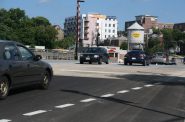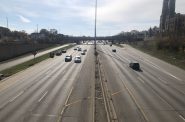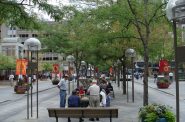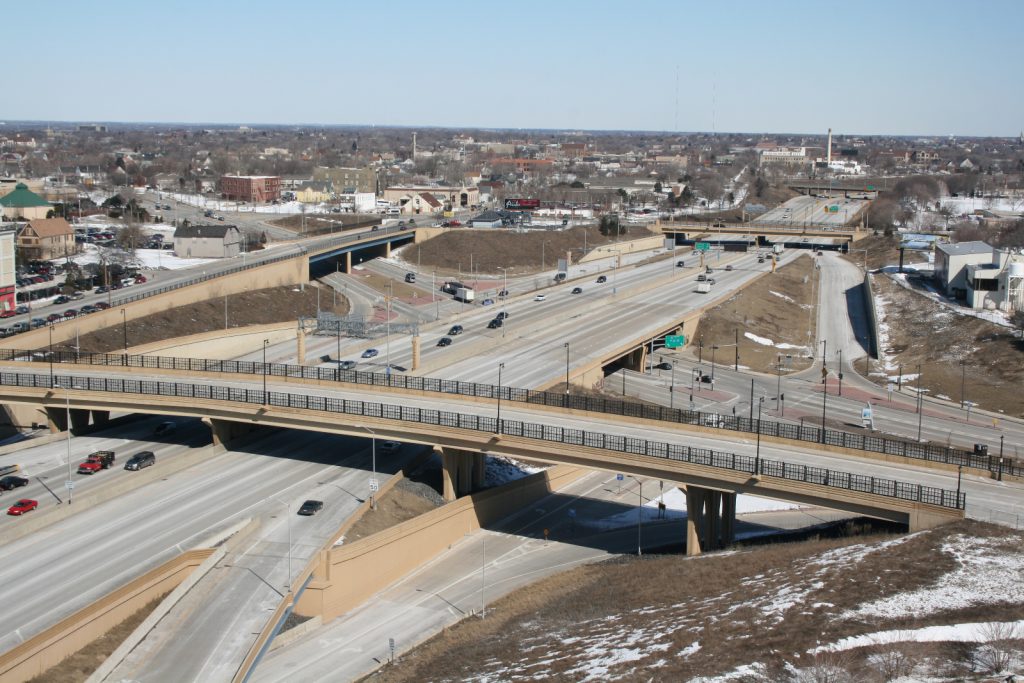How Highways Ruined Cities
All the city news you can use.
Want more links to read? Visit The Overhead Wire and signup. Every day at The Overhead Wire we sort through over 1,500 news items about cities and share the best ones with our email list. At the end of the week, we take some of the most popular stories and share them with Urban Milwaukee readers. They are national (or international) links, sometimes entertaining and sometimes absurd, but hopefully useful.
The Law Makes Americans Drive: Gregory Shill of The Atlantic posits that in the United States, freedom of movement comes with one critical qualifier: the obligation to drive. In the interests of Big Oil and various auto barons, generations of lawmakers rewrote American life. But while some obvious players, like the massive interstate highway network, endorse car dependency, some legal framework takes it a step further. From inequities in traffic regulation to the supremacy of single-family-zoning, the personal automobile has become a necessity out of coercion from the law. The struggle against automobile supremacy is just another struggle for justice in America. (Gregory H. Shill | The Atlantic)
Rewards Programs for Transit Ridership: We have frequent flyer miles and Uber Rewards, but there are no rewards programs set for transit agencies. While losing riders to ride-hail, some agencies are looking to complimentary drinks, gift certificates, and free rides to win them back. In 2016, Bay Area Rapid Transit launched BART perks, offering small cash rewards to commuters who opted to travel at off-peak times. The experiment got ten percent of targeted riders to make the adjustment. Portland’s bike-share system has been partnering with a tech startup to offer credits to riders to be redeemed at local retailers. As ridership drops, transit agencies are willing to try different ideas to boost ridership, including loyalty programs. (David Zipper | Wired)
Meet the Circular City: As the world heavily urbanizes, more waste is generated and more resources are consumed. Daniel Johnson at Fast Company takes readers to five circular cities, which mitigate waste and minimize their carbon footprint. Berlin, for example, has had a tradition of greening rooftops for about a century. Green roofs are circular because the protection from sunlight and high temperature that they provide help preserve building materials. In Brooklyn, a “sponge park” helps mitigate the collection of polluted runoff in the Gowanus canal; China has even begun a “sponge city initiative” to mitigate flooding and absorb more rainwater for recycling. With the increasing populations in urban areas worldwide, this need for green infrastructure becomes more critical. (Daniel Johnson | Fast Company)
How Highways Ruined Your City: A study from the Federal Reserve Bank of Philadelphia found that between 1950 and 2010, highways slowed growth in income, population, and land values in city centers, while having the opposite effect in outlying areas. They also greatly contributed to air and noise pollution. A history of freeway revolts shows that the closer a highway is to a city center, the more it diverged from its proposed route. Mid-century planners had an immature understanding of the adverse effects of cars, and the neighborhood activism that fought many urban highways highlights the severe inequities of their construction. This study has been submitted to a journal for peer review. (Darryl C. Murphy | Plan Philly)
Behind Amazon’s HQ2 Choices: Amazon says its decision to abruptly pull out of a second headquarters in Long Island City, Queens, was not due to politics, despite speculation. Instead, its choice to nix New York and commit to its Northern Virginia headquarters was based on an annual study of scores within all states of 64 metrics across 10 categories of competitiveness, like Workforce, Cost of Doing Business, and Quality of Life. Amazon’s biggest motivator, though, was finding a state committed to developing a technology talent pipeline for the future; Virginia, according to CNBC, has the nation’s largest concentration of science, technology, and math employees. All these factors considered, Virginia remained the frontrunner for the tech giant’s second headquarters and the pushback from New York just made it a little easier to decide to split the remaining 25,000 jobs around the country. (Scott Cohn | CNBC)
Quote of the Week
But what may be a novel land-use practice in most states is more familiar territory in Oregon. The Beaver State is a pioneer of policies that seek to nudge urban development upwards, rather than outwards.
–Laura Bliss in CityLab discussing Oregon’s move towards allowing more housing.
This week on the podcast, Candace Brakewood of the University of Tennessee and Jonny Simkin of Swiftly talk about the details of real time transit information.
Want more links to read? Visit The Overhead Wire and signup. (http://dtrnsfr.us/2iA8Yas)
Urban Reads
-
How Traffic Noise Impacts Children’s Brains
 Jul 1st, 2024 by Jeff Wood
Jul 1st, 2024 by Jeff Wood
-
Number of Super Commuters is Rising
 Jun 22nd, 2024 by Jeff Wood
Jun 22nd, 2024 by Jeff Wood
-
Why Has the Walkable City Been Villainized?
 Jun 9th, 2024 by Jeff Wood
Jun 9th, 2024 by Jeff Wood






















